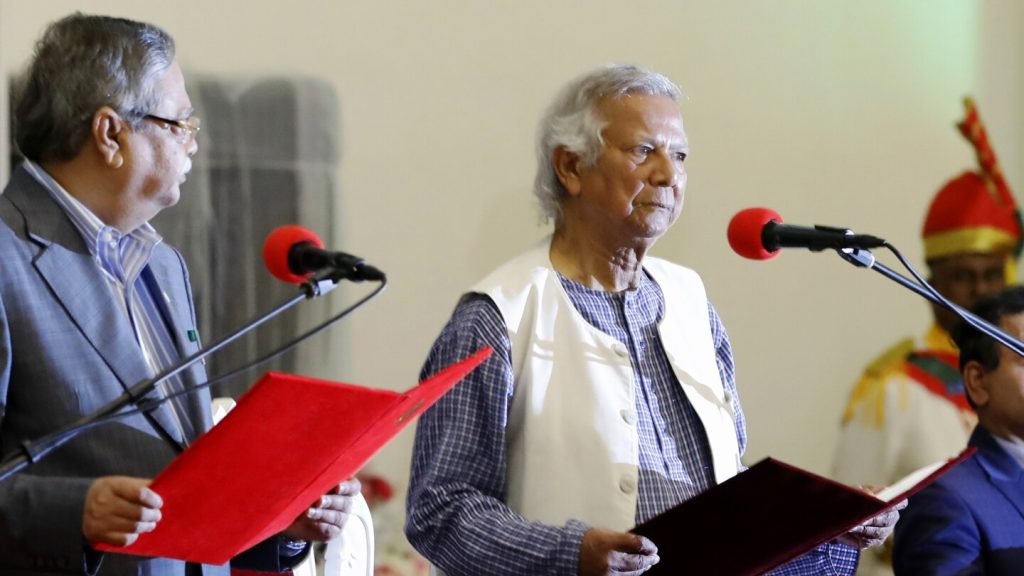The interim government in Bangladesh, led by Nobel laureate Muhammad Yunus, has lifted a ban on the Islamist Jamaat-e-Islami party that was previously imposed by former Prime Minister Sheikh Hasina. Hasina had banned the party, describing it as a “militant and terrorist” organization, following violent protests against her rule and the chaos caused by the party’s student wing and associate bodies. The ban was lifted by the Ministry of Home Affairs, allowing the party to resume its activities, although it still needs to register with the Election Commission to contest in polls. Jamaat-e Islami has been banned from participating in elections since 2013 due to a decision that its charter violated the constitution by opposing secularism.
Law Affairs Adviser Asif Nazrul criticized Hasina’s ban on the party as politically motivated rather than based on ideology. Mirza Fakhrul Islam Alamgir, the secretary-general of the Bangladesh Nationalist Party, also accused Hasina’s government of using the ban to divert attention from the violence that occurred during the protests against her rule. The Yunus-led government is working to restore political stability and order in the country, following the demoralization of police forces and other government sectors after attacks by protesters. A devastating flash flood has further added to the crisis, causing at least 27 deaths in various regions of Bangladesh.
During Hasina’s rule, there was widespread criticism of her authoritarian practices, including the arrest of thousands of opposition leaders and activists before the January elections that secured her fourth consecutive term in power. Human rights groups accused her of using security forces and courts to suppress the opposition, a charge that Hasina denies. Jamaat-e-Islami was founded in 1941 and opposed the creation of Bangladesh as an independent state during the war of independence from Pakistan in 1971. Following a mass uprising in 2013 calling for the execution of party leadership for war crimes committed during the independence war, many senior leaders were either hanged or jailed for crimes against humanity, including killings, abductions, and rapes. The party had formed militia groups to assist the Pakistani military during the nine-month war, which ended with Bangladesh gaining independence in December 1971.
The lifting of the ban on Jamaat-e-Islami could have significant implications for the political landscape in Bangladesh, as the party may now resume its activities and potentially participate in future elections. The decision has sparked mixed reactions, with some criticizing the move as a threat to the country’s secular values, while others see it as a step towards political inclusivity. The Yunus-led government faces the challenge of maintaining stability and addressing the various crises that have plagued the country, including political unrest, violence, and natural disasters. The international community will be closely monitoring the situation in Bangladesh as it navigates through this period of political uncertainty and tries to establish a path towards peace and reconciliation.


